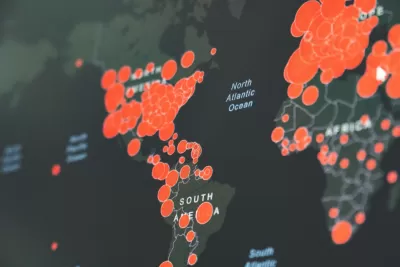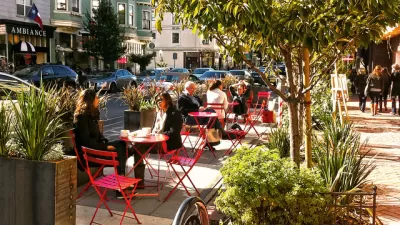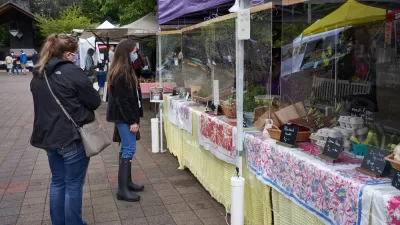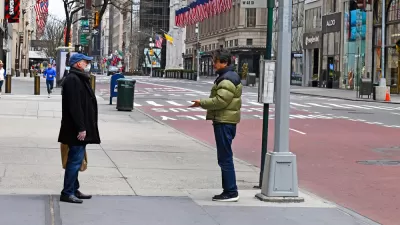POLITICO Magazine surveyed designers, architects, planners, doctors, psychologists, logisticians, and others, asking them how they would redesign the world for the Covid-19 era and beyond.

A variety of experts share how they would redesign our physical spaces and re-envision our models of service delivery. Some imagined ways to make physical spaces such as airports, apartments, offices, and parks more spacious and less risky to our health and wellbeing. Some envisioned new and more efficient models for delivering services as such as health care, medical supplies, social services, and voting. And others dreamed up ideas to sustain meaningful human interactions across physical and social distance. Here are the 19 ideas discussed in the article:
- Build skyward.
- Rethink restaurants - from back to front.
- Create more private outdoor spaces.
- Let airports sprawl.
- Replace prisons.
- Bring parks to people.
- Let the military manage the supply chain.
- Modernize the doctor house call.
- Create a new "healthist" economy.
- Refashion end-of-life care.
- Reimagine the retail experience.
- Replace short flights with buses.
- Sell diners on higher prices.
- Equip offices for the next crisis.
- Don't ditch in-person voting. Make it safer.
- Speed up delivery of government benefits.
- Keep distance learning in place.
- Enlist off-campus students in the recovery.
- Learn new communication tricks.
FULL STORY: How to redesign the world for coronavirus and beyond

Alabama: Trump Terminates Settlements for Black Communities Harmed By Raw Sewage
Trump deemed the landmark civil rights agreement “illegal DEI and environmental justice policy.”

Planetizen Federal Action Tracker
A weekly monitor of how Trump’s orders and actions are impacting planners and planning in America.

The 120 Year Old Tiny Home Villages That Sheltered San Francisco’s Earthquake Refugees
More than a century ago, San Francisco mobilized to house thousands of residents displaced by the 1906 earthquake. Could their strategy offer a model for the present?

In Both Crashes and Crime, Public Transportation is Far Safer than Driving
Contrary to popular assumptions, public transportation has far lower crash and crime rates than automobile travel. For safer communities, improve and encourage transit travel.

Report: Zoning Reforms Should Complement Nashville’s Ambitious Transit Plan
Without reform, restrictive zoning codes will limit the impact of the city’s planned transit expansion and could exclude some of the residents who depend on transit the most.

Judge Orders Release of Frozen IRA, IIJA Funding
The decision is a victory for environmental groups who charged that freezing funds for critical infrastructure and disaster response programs caused “real and irreparable harm” to communities.
Urban Design for Planners 1: Software Tools
This six-course series explores essential urban design concepts using open source software and equips planners with the tools they need to participate fully in the urban design process.
Planning for Universal Design
Learn the tools for implementing Universal Design in planning regulations.
Clanton & Associates, Inc.
Jessamine County Fiscal Court
Institute for Housing and Urban Development Studies (IHS)
City of Grandview
Harvard GSD Executive Education
Toledo-Lucas County Plan Commissions
Salt Lake City
NYU Wagner Graduate School of Public Service





























